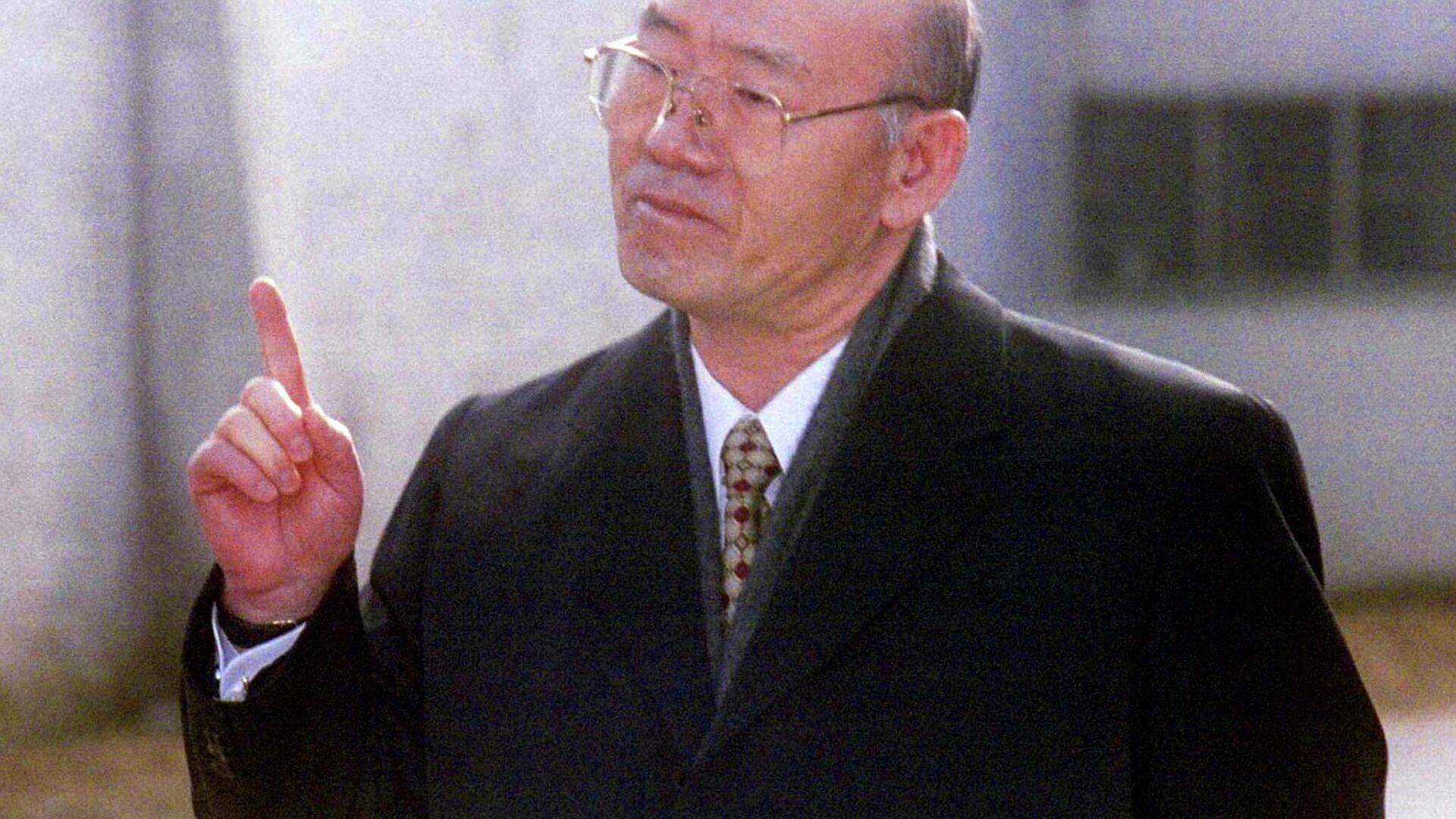Former South Korean President Chun Doo-Hwan Dead at 90 - Yonhap
00:56 GMT 23.11.2021 (Updated: 14:09 GMT 14.02.2023)

© REUTERS / Paul Barker
Subscribe
Chun Doo-Hwan, South Korea's fifth president, has died. Chun, who was 90, had served as South Korea's president from 1980 to 1988, following a coup d’état.
Chun died at his home in Seoul at 8:40 a.m. It was reported in August that he had been diagnosed with multiple myeloma, a type of blood cancer that affects plasma cells. He reportedly died of cardiac arrest.
#BreakingNews Former South Korean President Chun Doo-hwan dies at the age of 90. The former president, who had suffered from chronic diseases, died at 8:40 a.m. Tuesday at his home in Seoul. pic.twitter.com/o905AhJtyr
— Chanju Kim (@ChanjuKimNews) November 23, 2021
Chun's legacy is extremely complicated. He rose to power through a military coup and ruled South Korea as a strongman. In May of 1980, as Chun was consolidating his hold over South Korea, he enacted martial law throughout the entirety of the country. The move signaled to Koreans that another military dictatorship was set to rule the nation and prompted citizens in the city of Gwangju to mobilize.
The event became known as the Gwangju Democratization Movement. Chun immediately sent troops to end the movement and led to a bloody massacre that resulted in the deaths of some 4,900 people. The incident earned him the nickname, "The Butcher of Gwangju."
South Korean ex-dictator Chun Doo-hwan, who brutally crushed opponents until mass demonstrations forced him out, died at his home in Seoul, according to media reports https://t.co/CU4UFgUFpr pic.twitter.com/qcbBJWMfcH
— AFP News Agency (@AFP) November 23, 2021
Chun's presidency began with his abolition of all political parties, limiting freedom of the press, and enacting a new constitution. In 1983, North Korea attempted a failed assassination of Chun that resulted in the deaths of 17 people.
Chun ruled South Korea as a military dictator, but he was unable to turn his reign into a lifelong endeavor. The constitution he enacted in 1981 restricted a president to one seven-year term, which he honored.
HISTORY: Former South Korean President Chun Doo-hwan died on Tuesday at the age of 90.
— NK NEWS (@nknewsorg) November 23, 2021
In 1983, North Korea nearly assassinated Chun at the Martyrs’ Mausoleum in Rangoon, Burma. The bombs planted killed seventeen people.
Read more: https://t.co/LQhtCjvzdY pic.twitter.com/gTJDdHAuFs
Chun planned to hand the nation over to his protege, Roh Tae-woo. In 1987, when Roh was named candidate for president, it sparked pro-democracy demonstrations throughout South Korea. To appease the pro-democracy movement sweeping the country, Roh promised South Koreans direct presidential elections.
In December of 1987, Roh won the presidential election and Chun handed the presidency to Roh in February of 1988 in the first peaceful transfer of power in South Korea's history.
Over the next decade, Chun's brutal tactics to gain and maintain control of South Korea were put on trial by an increasingly democratic South Korean society. In April 1997, he was convicted of leading an insurrection, conspiracy to commit an insurrection, partaking in an insurrection, illegal troop movement orders, dereliction of duty during martial law, murder of superior officers, attempted murder of superior officers, murder of subordinate troops, leading a rebellion, conspiracy to commit rebellion, taking part in a rebellion, murder for the purpose of rebellion, and crimes relating to bribery. His conviction resulted in a life sentence and a ₩220 billion fine.
Chun's sentence was commuted in December of 1997, but he was still required to pay the ₩220 billion fine. In November of 2020, Chun was found guilty of defaming a pro-democracy activist. In his 2017 memoir, he called Cho Chul-hyun a “despicable liar” for testifying that government helicopters had fired on civilians.
Chun's two-year jail sentence was suspended due to his old age and deteriorating health.
